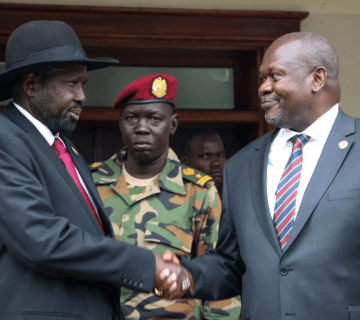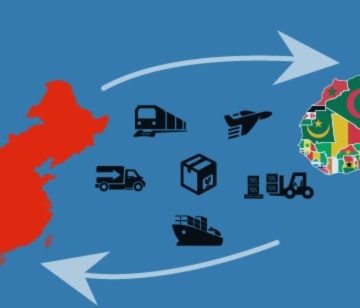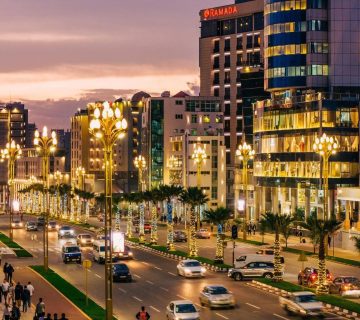Unlike the other 10 presidential candidates of the just-concluded election in Uganda, President Yoweri Museveni, who came to power in 1986, was seeking a sixth term. In December 2017, the Ugandan Parliament passed an amendment to the Constitution that removed the 75-year age limit, effectively paving way for Museveni to seek another term. With 35 years’ presidential experience and the advantage of incumbency, Museveni’s chances of winning were disproportionately higher than those of the other candidates. This did not mean that none of the rest had any chance of becoming the country’s next president. However, his high-handedness in the electoral process eliminated any such chances, leaving some Ugandans with doubts about the legitimacy of the eventual winner, and the peace and stability of their country after the election.
According to the Uganda Electoral Commission, there were 18.1 million registered voters, and 11 presidential candidates. Yoweri Museveni and Robert Kyagulanyi Ssentamu (Bobi Wine) were the leading contenders. Museveni was relying on his strong rural base, and Mr. Kyagulanyi on Uganda’s urban youth. 41 per cent of Uganda’s 45 million people are young. Both targeted the youth with promises to solve the problem of unemployment.
The ‘Ghetto President’
Being exactly twice as young as the incumbent, Mr. Kyagulanyi has become a symbol of hope and voice of many youths in Uganda. The musician-turned-politician is currently the Member of Parliament for Kyaddondo East Constituency in Wakiso District. On July 24, 2019, he officially declared that he will be running for the presidency on a National Unity Platform (NUP) ticket. Though many have questioned his ability to run a government, his party’s manifesto portrays him as a focused and promising leader who is keen on improving governance, education, health, economic development, land, natural resources, and the environment, among others. He understands the plight of the youth especially the ones living in the informal settlements. Uganda has not experienced a peaceful transfer of power. Mr. Kyagulanyi tried to change this by encouraging Ugandan citizens to go to the polls and exercise their constitutional rights. Throughout his music career, he has sung freedom songs that have inspired many to join his revolutionary movement, especially the youth. This is how he gained his “ghetto president’’ title.
However, Mr. Kyagulanyi’s physical and online campaigns (using the hashtag #WeAreRemovingADictator) have led to arbitrary arrests and more than 50 deaths, according to the Daily Monitor. Other opposition leaders also found it difficult to hold rallies because of COVID-19 restrictions, and fear of being harassed. Human Rights Watch flagged some instances such as those where security agencies have used COVID-19 as a scapegoat to suppress the opposition.
Shaky Elections
In the period leading to the elections, there was heavy deployment of military personnel and artillery in various parts of the country, especially in opposition areas, raising tensions and fear. In an address to the nation, President Museveni ordered the Uganda Communications Commission (UCC) to shut down all social media channels in the country. This was after Facebook blocked some of his supporters’ social media pages over allegations of public manipulation during elections. The shutting down of the internet raised eyebrows on how the results would be transmitted. When this question was posed to the chair of the Electoral Commission, Justice Simon Mugenyi, said that his Commission had its own systems and will not need the local internet to transmit results raising questions over the transparency of the entire process. Mr. Kyagulanyi has accused the government of fraud and lack of transparency in the elections. However, the government argues that the elections were conducted peacefully.
While Africa Elections Watch (AEW), who had deployed a coalition of 3,000 observers reported some irregularities, European Union (EU) observers refrained from observing this election after their previous electoral recommendations were not implemented. The United States of America also withdrew after their accreditation was denied.
Museveni’s Sixth Term
On January 16.2021, the Electoral Commission reported that Museveni and Mr. Kyagulanyi had garnered 5.85 million votes and 3.48 million votes respectively. Museveni was declared the winner on January 17, 2021, but Mr. Kyagulanyi has rejected the results. The latter is currently under house arrest and he cannot access local or international press. Security agencies in Uganda have said that they have taken these measures to prevent Bobi Wine from announcing parallel results. NUP may not have taken the presidency, but has won a significant number of seats in the parliamentary elections. This is a momentous step towards shaping a new political landscape in Uganda.
Asia M. Yusuf is a Researcher at the HORN Institute.
Banner photo: Uganda’s President Yoweri Museveni waves to his supporters as he arrives at a campaign rally ahead of the presidential elections in Entebbe, Uganda. (Photo Credit: REUTERS/James Akena)



